God

Shermer and Van Leeuwen discuss: his own personal religious journey (or lack thereof) • “believe,” “make-believe,” and “pretend play” • “taking God seriously” • 4 Principles of Factual Belief • Tanya Luhrmann’s How God Becomes Real: Kindling the Presence of Invisible Others • willing suspension of disbelief • group identity • sacred values • The Puzzle of Religious Rationality • that voice we all hear in our heads • “hearing the voice of God” • hallucinations and psychoses • sleep…
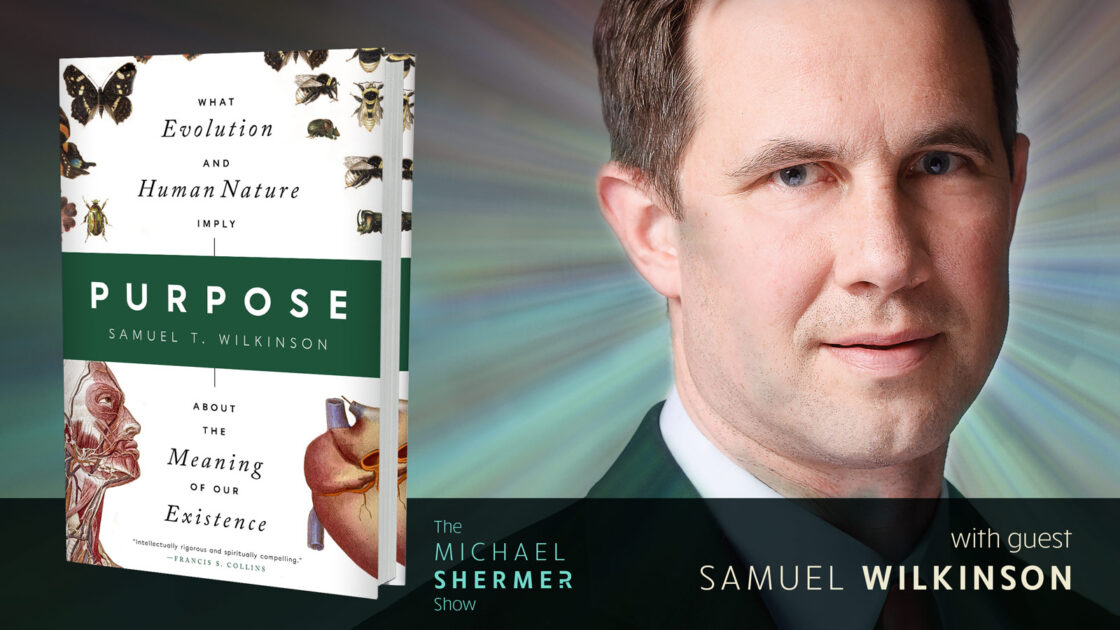
Shermer and Wilkinson discuss: • evolution: random chance or guided process? • selfishness and altruism • aggression and cooperation • inner demons and better angels • love and lust • free will and determinism • the good life and the good society • empirical truths, mythic truths, religious truths, pragmatic truths • Is there a cosmic courthouse where evil will be corrected in the next life? • theodicy and the problem of evil: Why do bad things happen to good…
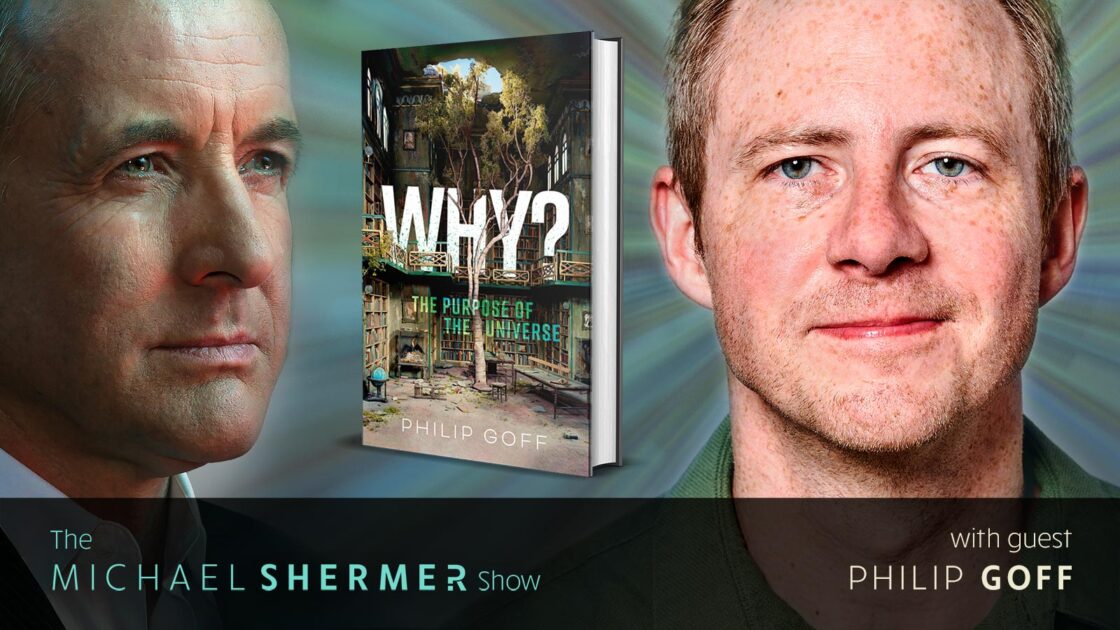
Shermer and Goff discuss: • living in a computer simulation • the universe itself as a conscious mind • cosmic purpose • fine-tuning • free will • consciousness (the ground of all being?) • morality and the Is-Ought Fallacy • What is my purpose in life? • religious vs. secular answers to the purpose question • awe and how to be spiritual but not religious.
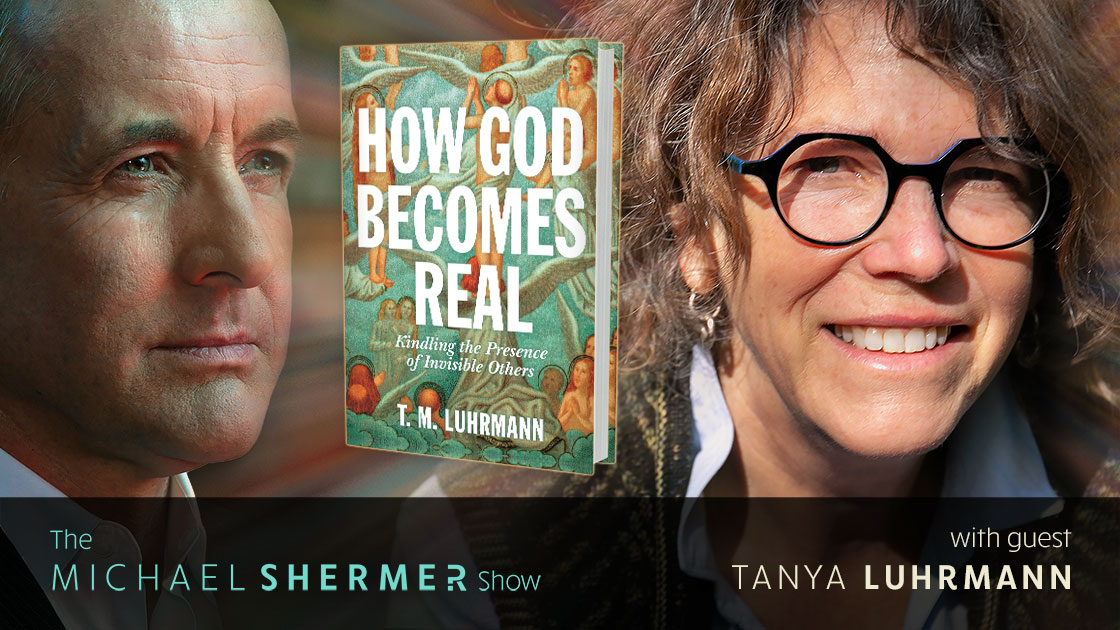
Shermer and Luhrmann discuss: the anthropology of religion • what it means when people say they “hear the voice of God” or are “walking with God” • normal “voices within” vs. hallucinations and psychoses • mystical experiences • anomalous psychological experiences • sleep paralysis and other cognitive anomalies • belief in angels and demons • absorption and religious beliefs • prayer vs. meditation vs. mindfulness • sensed presences • why people believe in God • empirical truths, religious truths, mythic truths…
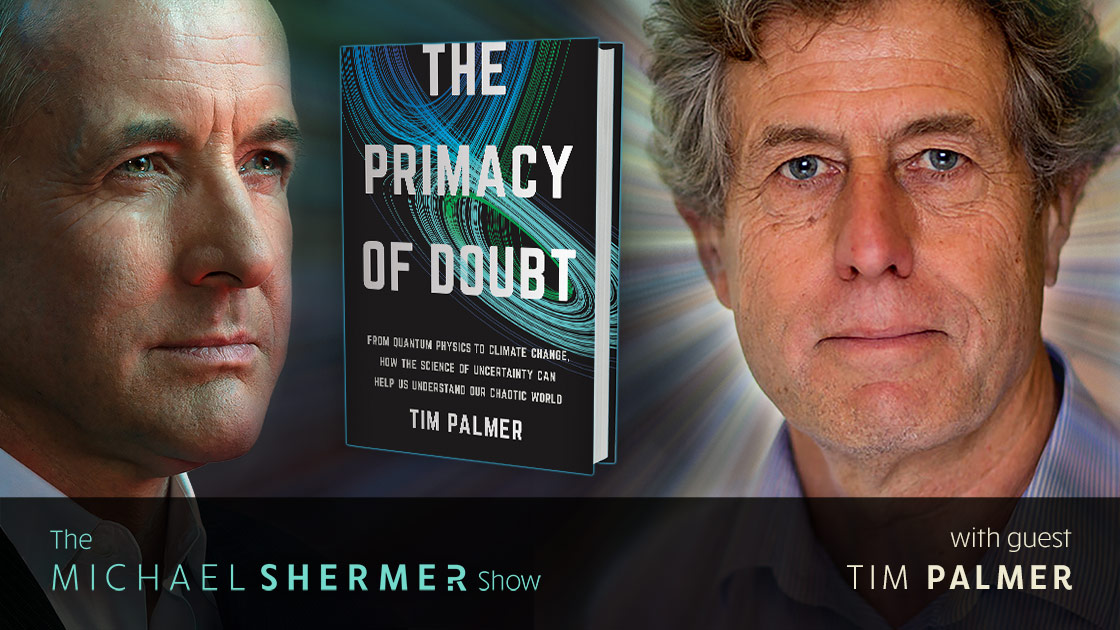
Shermer and Palmer discuss: doubt and skepticism • when doubt slides into denial • uncertainty as a measurement problem vs. inherent in natural systems • contingency and necessity, randomness and law • the butterfly effect • the geometry of chaos • quantum uncertainty • weather forecasting • climate change • pandemics • economic recessions • human decision making and creativity • free will • consciousness, and God.
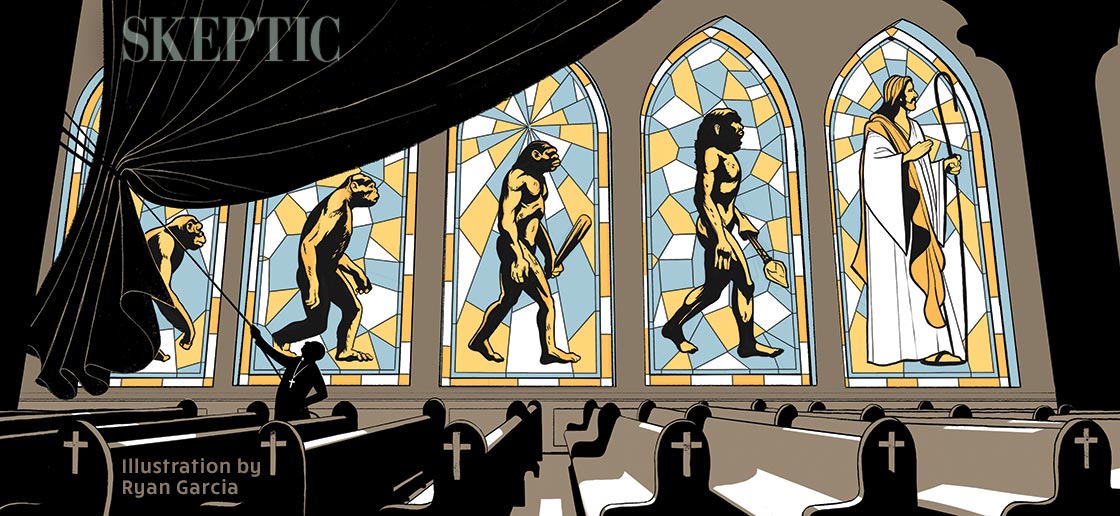
If you give Christians a choice between Jesus and Darwin by telling them that the theory of evolution means you have to be an atheist, they’re going to pick Jesus every time. In this article, Larry Arnhart argues that Christians should accept the theory of evolution not only because it’s true but also that it does not mean they have to give up their religion.
Michael Shermer speaks with Simon Conway Morris about chance, direction, and design in evolution, the possibility of purpose in the cosmos, and the existence (or not) of god. Plus, the Skeptic Research Center asks “Who Endorses Conspiracy Theories about Government Elites?”
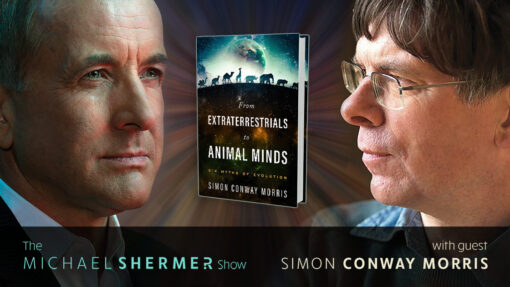
Michael Shermer speaks with Simon Conway Morris, Emeritus Professor of Evolutionary Palaeobiology at the University of Cambridge. In his latest book Morris challenges six assumptions — what he calls “myths” — that too often pass as unquestioned truths amongst the evolutionary orthodox. These include the idea that evolution is boundless in the kinds of biological systems it can produce. Not true, he says.
In episode 215, Michael Shermer speaks with Mary Eberstadt about the decline of religion in which Eberstadt presents her alternative theory for the “secularization thesis” (that the undermining of the family has undermined Christianity itself). In the second half, they discuss the rise of identity politics and how identitarians track and expose the ideologically impure, as people face the consequences of their rancor.

In episode 215, Michael Shermer speaks with Mary Eberstadt about the decline of religion in which Eberstadt presents her alternative theory for the “secularization thesis” (that the undermining of the family has undermined Christianity itself). In the second half, they discuss the rise of identity politics and how identitarians track and expose the ideologically impure, as people face the consequences of their rancor.
Jennifer Michael Hecht celebrates doubt as an engine of creativity and as an alternative to the political and intellectual dangers of certainty. This lecture from our archives was recorded in July 2005 as part of The Skeptics Society’s Distinguished Science Lecture Series.
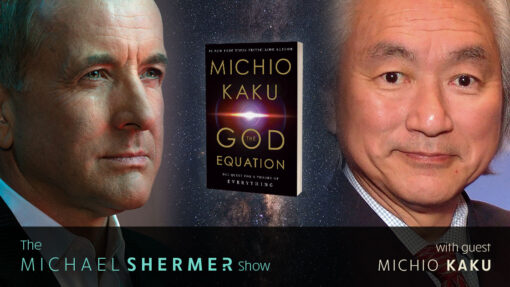
Synthesizing relativity and quantum theory would be the crowning achievement of science, a profound merging of all the forces of nature into one beautiful, magnificent equation to unlock the deepest mysteries in science. In this episode, Michael Shermer speaks with professor of theoretical physics Michio Kaku about: the Big Bang, black holes, worm holes, the multiverse, time travel, dark energy and dark matter, gravity, string theory, ETIs, meaning, and God.
Michael Shermer speaks with professor of theoretical physics Michio Kaku about The Quest for a Theory of Everything. PLUS: From now through April 10, 2021 (5 days only) all print and digital back issues Skeptic magazine are on sale for only $1.99 each!
In Science Salon podcast # 135, Michael Shermer speaks with Paul Halpern about his new book Synchronicity: The Epic Quest to Understand the Quantum Nature of Cause and Effect.
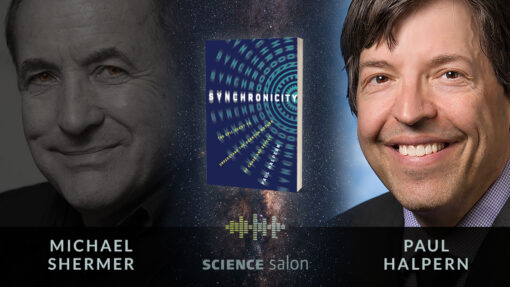
Does the universe have a speed limit? If not, some effects could happen at the same instant as the actions that caused them — and some effects, ludicrously, might even happen before their causes. Paul Halpern is a professor of physics at the University of the Sciences in Philadelphia and the author of sixteen popular science books.
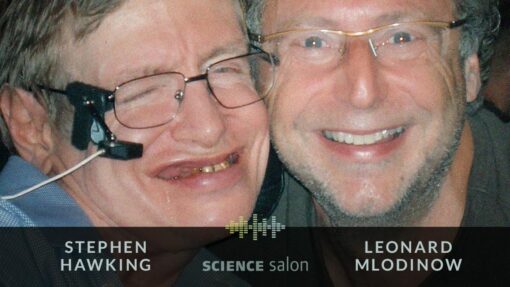
In Science Salon podcast # 132, Michael Shermer speaks with Leonard Mlodinow about his new book in which he recounts, in a unique and deeply personal portrayal, nearly two decades as Stephen Hawking’s collaborator and friend.
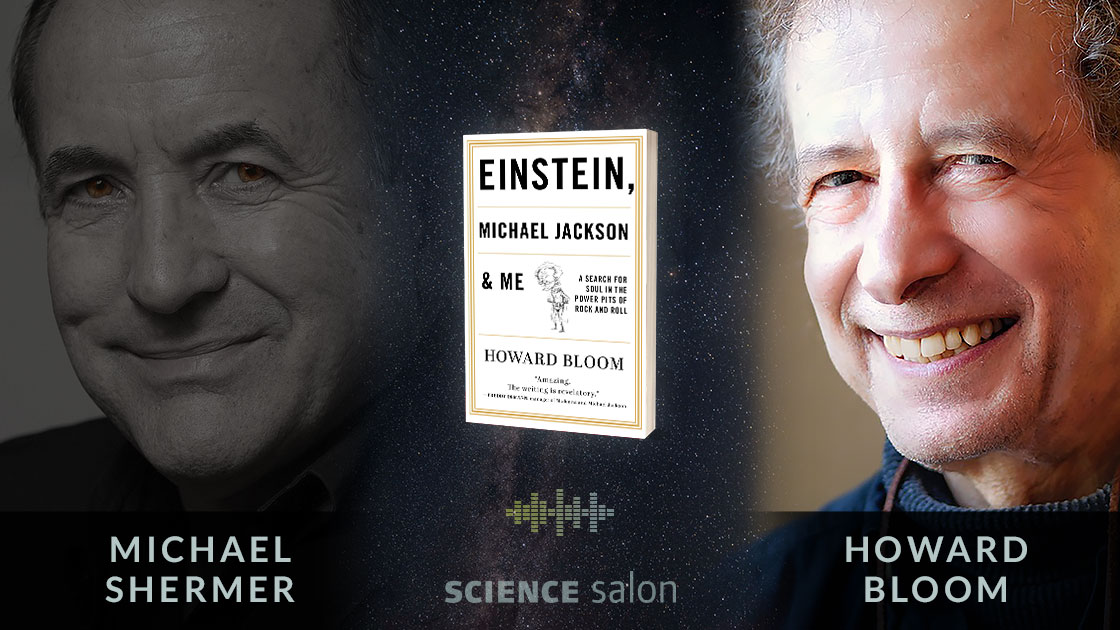
Howard Bloom — called “the greatest press agent that rock and roll has ever known” — is a science nerd who founded the biggest PR firm in the music industry and helped build or sustain the careers of rock-and-roll legends: Michael Jackson, Prince, Bob Marley, Bette Midler, Billy Joel, Billy Idol, Paul Simon, Peter Gabriel, David Byrne, AC/DC, Aerosmith, Queen, Kiss, Grandmaster Flash and the Furious Five, Run DMC, ZZ Top, Joan Jett, Chaka Khan, and one hundred more. What…
In Science Salon # 119 Michael Shermer speaks with Howard Bloom about his book Einstein, Michael Jackson, and Me: A Search for the Soul in the Power Pits of Rock and Roll. PLUS, we examine free speech and censorship in Skeptic Magazine 25.2 (2020): Giving the Devil His Due, available now in print and digital formats.
In Science Salon # 89 Michael Shermer speaks with Richard Dawkins about his new book Outgrowing God. Dawkins explains how the natural world arose without a designer and challenges head-on some of the most basic assumptions made by the world’s religions. PLUS: Is the statement “We are living in a post-truth world” true? If your answer is “yes” then the answer is “no” because you’ve just evaluated the statement in an evidentiary manner, so evidence still matters and facts still…
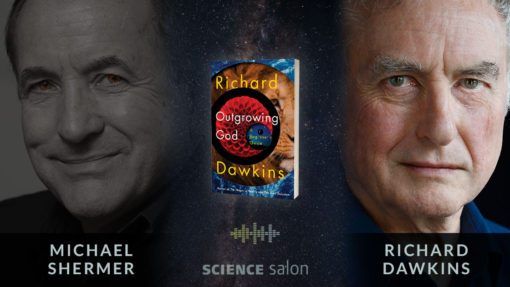
Richard Dawkins explains how the natural world arose without a designer — the improbability and beauty of the “bottom-up programming” that engineers an embryo or a flock of starlings — and challenges head-on some of the most basic assumptions made by the world’s religions.
NEXT →





















